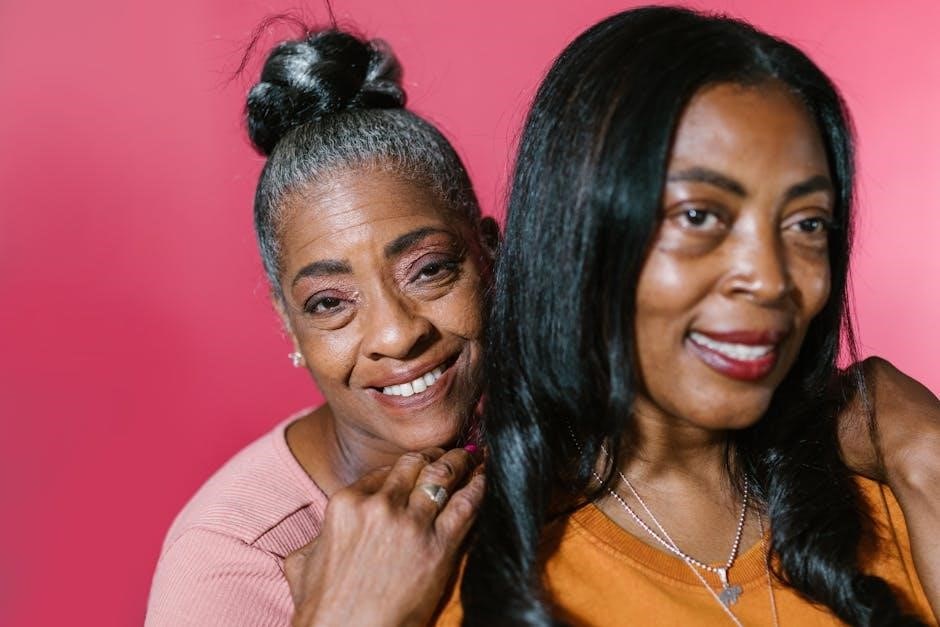Aged care interviews are crucial for assessing candidates’ suitability for roles in elderly support. These interviews often include general, behavioral, and situational questions to evaluate skills, empathy, and commitment. Preparation is key to showcasing relevant experience and understanding of the sector’s unique challenges.

Common Aged Care Interview Questions
When preparing for an aged care interview, it’s essential to familiarize yourself with commonly asked questions. These questions are designed to assess your suitability for the role, your understanding of the industry, and your ability to provide quality care. Some frequently asked questions include:
- Why do you want to work in aged care? This question evaluates your motivation and commitment to the sector.
- What qualities and skills can you bring to the role? Highlight your relevant experience, empathy, and ability to support vulnerable individuals.
- Tell us about a challenging situation you’ve faced while caring for someone. This assesses your problem-solving skills and ability to handle difficult scenarios.
- How would you prioritize tasks while caring for multiple residents? Demonstrates your organizational and time-management skills.
- How do you ensure dignity and respect for residents? Reflects your understanding of ethical caregiving practices.
- Can you describe your experience working with people with dementia or other specific conditions? Shows your ability to cater to diverse care needs.
These questions are tailored to understand your passion for care work, your interpersonal skills, and your ability to adapt to the demands of the aged care sector. Employers seek candidates who are compassionate, reliable, and genuinely committed to improving the lives of older adults. Preparing thoughtful responses to these questions will help you stand out during the interview process.
Behavioral Questions in Aged Care Interviews
Behavioral questions in aged care interviews are designed to assess how you handle real-life situations, showcasing your past experiences and skills. These questions help employers gauge your problem-solving abilities, empathy, and commitment to providing quality care. Common examples include:
- Tell us about a time you supported a resident with a specific need. This highlights your ability to personalize care.
- Describe a challenging situation you faced while caring for someone. Employers want to see how you manage stress and difficult scenarios.
- How do you ensure a resident’s dignity and independence? This evaluates your understanding of person-centered care.
- Can you share an experience where you went above and beyond for a resident? Demonstrates your compassion and dedication.
- How would you handle a resident who resists care? Assesses your communication and de-escalation skills.
When answering behavioral questions, use the STAR method (Situation, Task, Action, Result) to structure your responses clearly. Be specific about your role and the outcomes of your actions. This approach helps employers visualize how you’ll perform in similar situations. By preparing examples from your experience, you can confidently showcase your skills and alignment with the values of aged care.

Situational Questions in Aged Care Interviews
Situational questions in aged care interviews are designed to evaluate how you would respond to hypothetical or real-life scenarios in a caregiving environment. These questions help employers assess your decision-making skills, problem-solving abilities, and alignment with the organization’s values. Examples include:
- How would you handle a resident who becomes aggressive? This tests your ability to de-escalate conflicts and prioritize safety.
- What would you do if a resident refuses to take their medication? Assesses your approach to promoting health while respecting their autonomy.
- How would you support a resident experiencing grief or loss? Evaluates your empathy and ability to provide emotional support.
- Describe how you’d prioritize tasks during a busy shift. Highlights your organizational and time-management skills.
When answering situational questions, focus on demonstrating your ability to think critically and act compassionately. Use the STAR method (Situation, Task, Action, Result) to provide clear, structured responses. Highlight your understanding of aged care principles, such as person-centered care and dignity of the individual. By preparing for these types of questions, you can confidently showcase your ability to handle challenging situations in a professional and empathetic manner.
Skills and Qualities Employers Look For

Employers in the aged care sector seek candidates who possess a unique blend of skills and qualities that align with the demands of caregiving. Empathy and compassion are paramount, as they enable caregivers to understand and respond to the emotional and physical needs of residents. Strong communication skills are also essential, as clear interaction with residents, families, and colleagues is critical for effective care.
- Physical and emotional stamina to handle the demands of the role.
- Teamwork and collaboration to work effectively within multidisciplinary teams.
- Problem-solving skills to address challenges and make sound decisions.
- Adaptability and flexibility to manage changing priorities and situations.
- Respect for diversity and the ability to support residents from varied backgrounds.
- Commitment to ethical practices and maintaining resident dignity.
Employers also value relevant experience and certifications, such as a Certificate IV in Disability Support or similar qualifications. Demonstrating a genuine passion for aged care and a willingness to learn further enhances your appeal as a candidate. These skills and qualities ensure you can provide high-quality, person-centered care and thrive in this rewarding yet challenging field.
Preparing for Your Aged Care Interview
Preparing for your aged care interview involves thorough research of the employer and practicing responses to common questions. Be ready to discuss your skills, experience, and passion for elderly care effectively and confidently. This preparation helps you make a positive impression and secure the role.
Researching the Employer
Researching the employer is essential to understand their mission, values, and services. Review their website, annual reports, and social media to gain insights into their culture and operational practices. This knowledge allows you to align your responses with their goals during the interview.
Practicing Responses
Practicing responses is vital to feel confident during an aged care interview. Review common questions and prepare thoughtful answers using the STAR method (Situation, Task, Action, Result). Consider role-playing with a friend or recording your answers to improve delivery and clarity. This practice ensures you articulate your skills and experiences effectively, demonstrating your suitability for the role. Regular rehearsal also helps reduce nervousness, enabling you to focus on presenting your qualifications and passion for elderly care. By refining your responses, you can confidently convey your commitment to providing high-quality support and understanding of the sector’s challenges. Effective preparation not only enhances your performance but also shows your dedication to the profession. Use practice sessions to tailor your answers to the specific employer, aligning your responses with their values and mission. This strategic approach significantly improves your chances of making a positive impression during the interview.

Sample Answers and Response Techniques
Sample answers provide insight into effective response techniques for aged care interviews. Use the STAR method (Situation, Task, Action, Result) to structure answers, emphasizing empathy, problem-solving, and commitment. For example, when asked about challenging situations, highlight patience and clear communication. Always align responses with the employer’s values and mission to demonstrate dedication and understanding of the role.
Techniques for Effective Responses
Effective responses in aged care interviews require a combination of preparation, empathy, and clear communication. Employers seek candidates who can articulate their skills and experiences in a way that aligns with the organization’s values. One key technique is to use the STAR method (Situation, Task, Action, Result) when answering behavioral questions. This structure helps provide concise, focused responses that highlight problem-solving abilities and outcomes.
Active listening is also crucial. Pay attention to the interviewer’s questions and tailor your answers to address their concerns directly. Demonstrating empathy and understanding of the challenges faced by elderly clients can set you apart. For example, when discussing a difficult situation, emphasize how you prioritized the client’s comfort and dignity.

Additionally, incorporate positive language to showcase your passion for caregiving. Avoid vague statements and instead provide specific examples from your experience. For instance, describe how you supported a client with dementia by creating a personalized care plan. Finally, always tie your responses back to the organization’s mission, showing how your values and skills align with their goals. By combining these techniques, you can deliver impactful, memorable answers that resonate with interviewers.

Closing Comments
Preparing for an aged care interview requires more than just understanding the job description. By familiarizing yourself with common aged care interview questions and practicing your responses, you can confidently showcase your skills, experience, and commitment to providing high-quality care.
Employers in the aged care sector look for candidates who demonstrate empathy, patience, and a genuine passion for supporting vulnerable individuals. Highlighting your ability to work in a team, adapt to challenging situations, and prioritize client-centered care will make your application stand out. Additionally, emphasizing your understanding of local regulations, cultural sensitivities, and ethical caregiving practices can further strengthen your position.
Remember, an interview is not just about answering questions but also about asking the right ones. Inquiring about the organization’s approach to care or opportunities for professional development shows your interest and commitment to growth in the field. By thoroughly preparing and presenting yourself with confidence and sincerity, you can increase your chances of success in the aged care industry.
